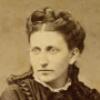Mary Goldsmith Prag
The mother of the first Jewish congresswoman, Mary Goldsmith Prag was a pioneer in her own right as a gold-rush era teacher and the first Jewish member of the San Francisco Board of Education. Prag immigrated to San Francisco at age six with her family, making the journey from New York through Central America by mule, canoe, and steamship. For twenty-eight years, she taught at Temple Emanu-El in San Francisco, and also taught in and served as head of the history department and vice-principal of Girls’ High School. After her retirement in 1921, she joined the school board, where she helped pass both the Teachers’ Pension Bill and a bill to ensure male and female teachers were paid at the same rates.
Article
One of California’s first Jewish educators, Mary Goldsmith Prag came to San Francisco as a young child during the Gold Rush. She became a religious and secular teacher, an administrator, a fighter for equal rights for women, and the mother of the first Jewish congresswoman, Florence Prag Kahn.
Born in Poland in 1846, Prag reached San Francisco in 1852, having crossed the Atlantic to New York, then continuing to Central America, crossing the Isthmus of Nicaragua by mule and canoe, and finally arriving in California on a crowded steamship. With Mary were her mother, Sarah Goldsmith, her father, Isaac Goldsmith, who would become a ritual butcher for the young Jewish community, and an older brother and sister. Soon there would be six children in the family. She attended both public school and the religious schools of Congregation Emanu-El (founded in 1851) and Hephzibah, a community religious school. After graduating from San Jose State Normal School, she married Conrad Prag on October 3, 1865, in San Francisco. Born in 1831 in Poland, Conrad Prag was a forty-niner, a merchant, and a founding member of San Francisco’s and Salt Lake City’s Jewish communities.
Establishing a home in Salt Lake City, where Conrad Prag then lived, Mary Goldsmith Prag gave birth to two children, Florence (b. 1866) and Jessie (b. 1869). Jessie died at age ten. Florence would marry Congressman Julius Kahn and, upon his death, succeed him in Congress. Conrad Prag died on December 17, 1883.
The family returned to San Francisco in 1869. Prag taught for twenty-eight years at Temple Emanu-El, and also taught in and served as head of the history department of Girls’ High School. In 1905, she was appointed vice-principal of the school. Upon her retirement in 1921, Prag was named the first Jewish member of the San Francisco Board of Education, where she served until her death on March 17, 1935, at age eighty-nine. Known for her progressive educational methods, tenacity, and sense of humor, Prag had among her many accomplishments the passage of the Teachers’ Pension Bill and a bill that guaranteed women teachers were paid the same as men. She was affiliated with the Federation of Jewish Charities, the Jewish Education Society, the Jewish Community Center, and Temple Emanu-El.
Prag’s writings describe the early history of San Francisco’s and Utah’s Jewish and secular communities, painting vivid pictures of individuals and events that shaped the West. Her unpublished manuscripts include “Early Days,” a memoir of the chaotic days of Gold Rush San Francisco, and “My Life Among the Mormons,” describing her life in Utah. Her reminiscences of Jewish education in San Francisco are published in Jacob Voorsanger’s The Chronicles of Emanu-El.
Both by example and in her writings, Prag left a record of Jewish life in the nineteenth century Far West, demonstrating how a woman and a practicing Jew could play a leadership role in religious and public life, a model followed by her daughter, Florence Prag Kahn.
AJYB 37:260.
“Mary Prag (1846–1935).” Memorial Meeting, San Francisco Board of Education (March 1935).
Meyer, Martin. Western Jewry: An Account of the Achievements of the Jews and Judaism in California (1916).
Prag, Mary Goldsmith. Manuscripts. Western Jewish History Center, Judah Magnes Museum. Berkeley, Calif..
Stern, Norton B. “The Prags in Brief.” Western States Jewish History 17 (1985): 163–169.
Voorsanger, Jacob. The Chronicles of Emanu-El (1900), and “Random Thoughts.” Emanu-El 8 (1899): 1.
“Who’s Who in Politics.” Emanu-El 9 (1929): 14.




